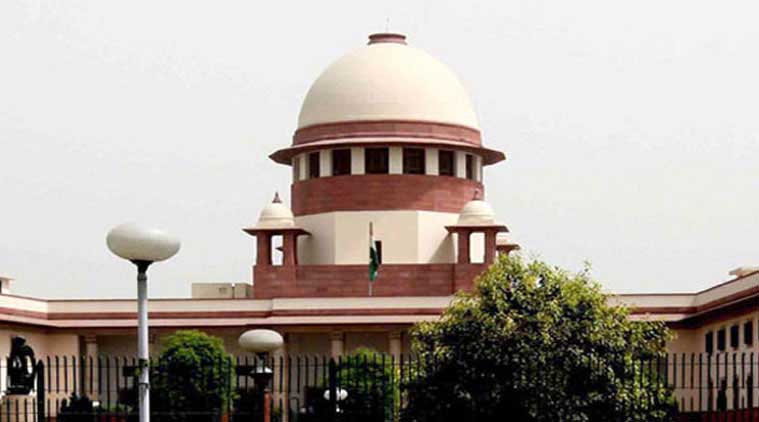இதற்கு முன் இரண்டு அத்தியாயம் நாம் அவதூறைப் பற்றியும் அவற்றிற்கான விளக்கத்தையும் பார்த்தோம் பின்பு எவையேல்லாம் அவதூறு இல்லை என ஒன்று முதல் ஐந்து வரையான விதிவிளக்கை பார்த்தோம் இனி விதிவிளக்கு 6 லிருந்து பார்ப்போம்.
விதிவிளக்கு 6 -
பொது நிகழ்ச்சிகளான நாடகம், பாட்டுக் கச்சேரி, நடனம் பற்றிய நல்லெண்ணத்தின் அடிப்படையில் தெரிவிக்கப்படும் கருத்துக்களை அவதூறாக கொள்ளக் கூடாது. ஏன் என்றால் அத்தகைய நிகழ்ச்சிகள் பொது மக்களின் கணிப்புக்காக சமர்ப்பிக்கப்படுவதால் அவற்றை நடத்துபவரைப் பற்றியும் நடிப்பவரைப் பற்றியும் நிகழ்ச்சியின் தரத்தைப் பற்றியும் கருத்து தெரிவிப்பதை அவதூறாக கருதக்கூடாது.
Sixth Exception- Merits of public performance: --It is not defamation to express in good faith any opinion respecting the merits of any performance which its author has submitted to the judgment of the public, or respecting the character of the author so far as his character appears in such performance, and no further.
விளக்கம் - பொது மக்கள் பார்க்க அனுமதிக்கப்படும் நிகழ்ச்சிகள் அல்லது பொது மக்கள் முன் நடைப்பெறும் நிகழ்ச்சிகள் அனைத்தும் பொதுமக்களுக்கு சமர்ப்பிக்கப்பட்டவையாகவே கருதப்படும்.
Explanation-A performance may be substituted to the judgment of the public expressly or by acts on the part of the author which imply such submission to the judgment of the public.
Illustrations - உதாரணம்
அ - ஒருப் புத்தகம் வெளியிடப்படும் போது அது மக்களின் கணிப்புக்கு உள்ளாக்கப் படுகிறது
(a) A person who publishes a book, submits that book to the judgment of the public.
ஆ - ஒரு பொது மேடையில் நிகழ்த்தப்படும் உரை பொது மக்களின் விமர்சனத்துக்கு உட்பட்டது.
(b) A person who makes a speech in public, submits that speech to the judgment of the public.
இ - பொது அரங்குகளில் பாடுபவர் அல்லது நடிப்பவர் தம்முடைய புலமையை பொது மக்களின் விமர்ச்சனத்திற்கு வைக்கிறார்கள்.
(c) An actor or singer who appears on a public stage, submits his acting or signing in the judgment of the public.
ஈ - ஒரு புத்தகத்தை படிக்கும் நாம் அந்தப் புத்தகத்தில் அந்த ஆசிரியர் ஒரு அபாச கருத்தைக் கூறியிருந்தால் அவர் அபாச எண்ணமுள்ளவர் - புத்தகம் ஒழுக்க கேடாக உள்ளது என கருத்தை தெரிவிப்பது இந்த விதிவிலக்கில் அடங்கும். ஆசிரியரைப் பற்றி கூறும் வார்த்தைகள் அவருடைய புத்தகத்தை அடிப்படையாக கொண்டு கூறப்படுவதாகும்.
(d) A says of a book published by Z-"Z's book is foolish; Z must be a weak man. Z's book is indecent; Z must be a man of impure mind". A is within the exception, if he says this in good faith, in as much as the opinion which he express of Z respects Z's character only so far as it appears in Z's book, and no further.
உ - ஆனால் ஒரு விமர்சகர் - அந்த புத்தகத்தில் மாத்திரம் அல்ல நிழ வாழ்விலும் அவர் அதாவது ஆசிரியர் தரக்குறைவானாவர் என அவரை தனிப்பட்ட முறையில் விமர்சனம் செய்வது தவறாகும் அதற்கு இந்த விதிவிளக்கு பொருந்தாது.
(e) But if A says-"I am not surprised that Z's book is foolish and indecent, for he is a weak man and a libertine". A is not within this exception, inasmuch as the opinion which he expresses of Z's character is an opinion not founded on Z's book.
விதிவிளக்கு 7 -
ஒருவர் சட்டப்படி தனக்கு விதிக்கப்பட்ட அல்லது சட்டப்படி வழங்கப்பட்ட ஒரு தணிக்கை முறைப்படி ஒரு விமர்சனம் செய்ந்தால் அவர் மீது அவதூறு குற்றசாட்டை விதிக்க முடியாது.
Seventh Exception- Censure passed in good faith by person having lawful authority over another:- It is not defamation in a person having over another any authority, either conferred by law or arising out of a lawful contract made with that other, to pass in good faith any censure on the conduct of that other in matters to which such lawful authority relates.
Illustration - உதாரணம்
ஒரு நீதிபதி தன்னிடம் வழங்கப்பட்ட அதிகாரத்தின் படி ஒரு சாட்சியை கண்டிக்கிறார் அல்லது தம் கீழ் பணிப்புரியும் நீதிமன்ற அலுவலரைக் கண்டிக்கிறார். அல்லது தம் கீழ் பணியாற்றும் ஒரு பணியாளரை ஒரு மேலதிகாரி கண்டிக்கிறார், பெற்றோர் தம் குழந்தையின் நடத்தையை பிற குழந்தைகளின் முன்னிலையில் கண்டிக்கிறார். ஒரு ஆசிரியரானவர் ஒரு மாணவனை மற்ற மாணவர்களின் முன்னிலையில் கண்டிக்கிறார். மேலும் master - servant நடத்தைகளின் படி ஒருவரை பலர் முன்னிலையில் கண்டிக்கலாம். இவைகள் இந்த விதிவிளக்கில் அடங்கும்.
A judge censuring in good faith the conduct of a witness, or of an officer to the Court; a head of a department censuring in good faith those who are under his orders; a parent censuring in good faith a child in the presence of other children; a school-master, whose authority is derived from a parent, censuring in good faith a pupil in the presence of other pupils; a master censuring a servant in good faith for remissness in service; a banker censuring in good faith the cashier of his bank for the conduct of such cashier as such cashier-are within the exception.
விதிவிளக்கு 8 -
ஒருவர் மீது சட்டப்பூர்வமான முறையில் அதிகாரம் செலுத்தும் நபரிடம். அந்த நபரைப் பற்றி நல்ல எண்ணத்துடன் தாக்கல் செய்யப்படும் ஒரு தகவலை அவதூறாக எடுத்துக்கொள்ளக்கூடாது.
Eight Exception- Accusation preferred in good faith to authorized person. -- It is not defamation to prefer in good faith an accusation against any person to any of those who have lawful authority over that person with respect to the subject-matter of accusation.
Illustration - உதாரணம்
ஒரு குற்றவாளியைப் பற்றி ஒரு நீதிபதியிடமும் அல்லது ஒரு பணியாளளைப் பற்றி அவரின் எஜமானிடமும் அல்லது ஒரு சிறுவனின் குணநலத்தைப் பற்றி அவரின் பெற்றோரிடமும் தெரிவிப்பது இந்த விதிவிளக்கில் அடங்கும்.
If A in good faith accuse Z before a Magistrate; if A in good faith complains of the conduct of Z, a servant, to Z's master ; if a in good faith complains of the conduct of Z, and child, to Z's father-A is within this exception.
விதிவிளக்கு 9 - ஒருவர் தன்னுடைய நலன் கருதியும் அல்லது பிறருடைய நலன் கருதியும் அல்லது பொதுமக்களின் நலன் கருதியும் நல்லெண்ணத்துடனும் கூறப்படும் வசைச் சாட்டுகள் எதனையும் அவதூறாக கொள்ளக்கூடாது.
Ninth Exception- Imputation made in good faith by person for protection of his or other's interests: - It is not defamation to make an imputation on the character of another provided that the imputation be made in good faith for the protection of the interests of the person making it, or of any other person, or for the public good.
Illustrations
அ - எ என்ற கடைக்காரர் பி என்பவரிடம் சி என்பவருக்கு எதுவும் கடனாக தரவேண்டாம் அவரது நாணயத்தில் தனக்கு நம்பிக்கையில்லை எனவும் மேலும் அவர் பணத்தைப் பெற்று எந்தப் பொருளைக் கேட்டாலும் தரலாம் என்று நல்லெண்ணத்துடன் ஒரு கருத்தை சொல்கிறார் இது அவதூறாகாது.
(a) A, a shopkeeper, says to B, who manages his business-"Sell nothing to Z unless he pays you ready money, for I have no opinion of his honesty". A is within the exception, if he has made this imputation on Z in good faith for the protection of his own interests.
ஆ - எ என்கிற குற்றவியல் நீதிபதியிடம் தம்முடைய மேல் அதிகாரிக்கு சி என்பவரைப் பற்றி ஒரு கருத்தை முன் வைத்து எழுதுகிறார் இது பொது மக்களின் நலன் குறித்தும் நல்லெண்ணத்துடன் அப்படி எழுதுகிறார். இதற்காக எ ஒரு விதிவிளக்கைப் பெறுகிறார் இந்தப் பிரிவின் கீழ்.
(b) A, a Magistrate, in making a report of his own superior officer, casts an imputation on the character of Z. Here, if the imputation is made in good faith, and for the public good, A is within the exception.
விதிவிளக்கு - 10
ஒருவர் மற்றவர் மீது கொண்டுள்ள நல்லெண்ணத்தின் அடிப்படையிலும் அல்லது பொது மக்களின் நலனில் அக்கறைக் கொண்டு அவர்களிடன் ஒருவரைப் பற்றி நல்லெண்ணத்துடன் எச்சரிப்பது குற்றமாகாது.
Tenth Exception- Caution intended for good of person to whom conveyed or for public good: --It is not defamation to convey a caution, in good faith, to one person against another, provided that such caution be intended for the good of the person to whom it is conveyed, or of some person in whom that person is interested, or for the public good.
http://www.indianlawcases.com/Act-Indian.Penal.Code,1860-1966
குறிப்பு -
இந்த பகுதியில் உள்ளவற்றை பொது அறிவாக மட்டும் எடுத்துக் கொள்ள வேண்டும் ஏதாவது
சட்ட நுனுக்கம் தவறாக இருப்பின் சுட்டிக் காட்டுங்கள்
திருத்திக்கொள்கிறோம். இதையே இறுதி வடிவமாக எடுத்துக் கொள்ளக்கூடாது. மேலும் இது வழக்குக்குரியதல்ல.


.jpg)



தகவல் நன்று நண்பரே..
ReplyDelete